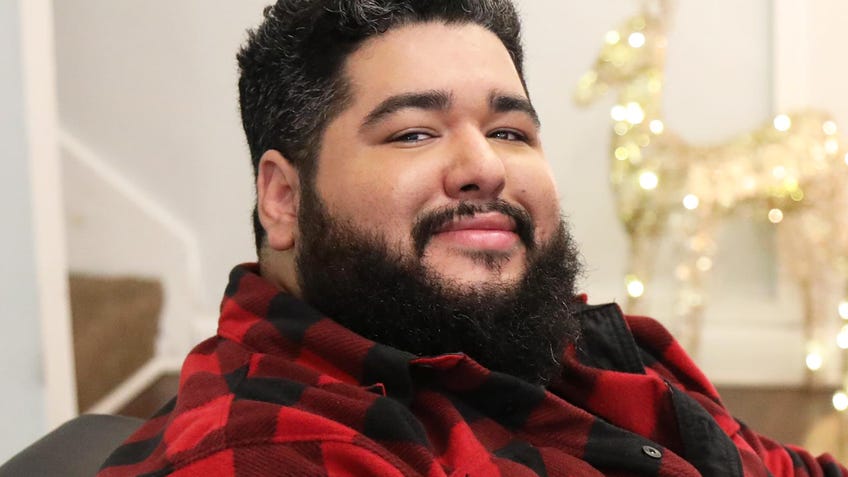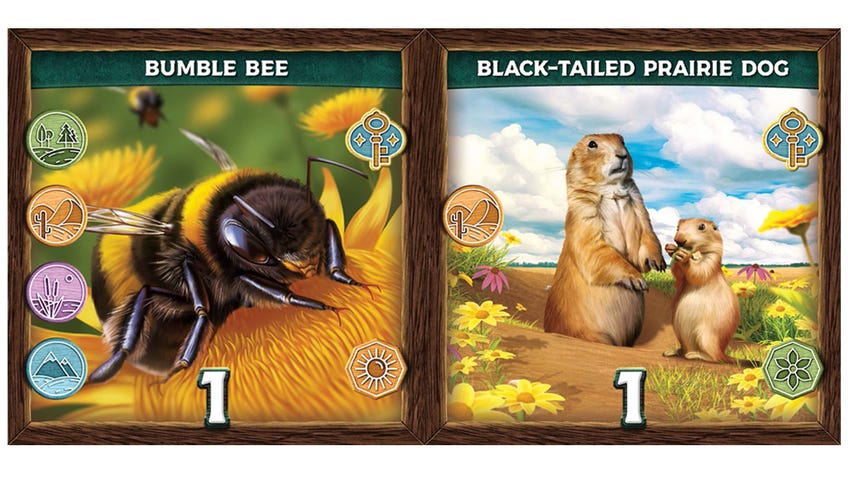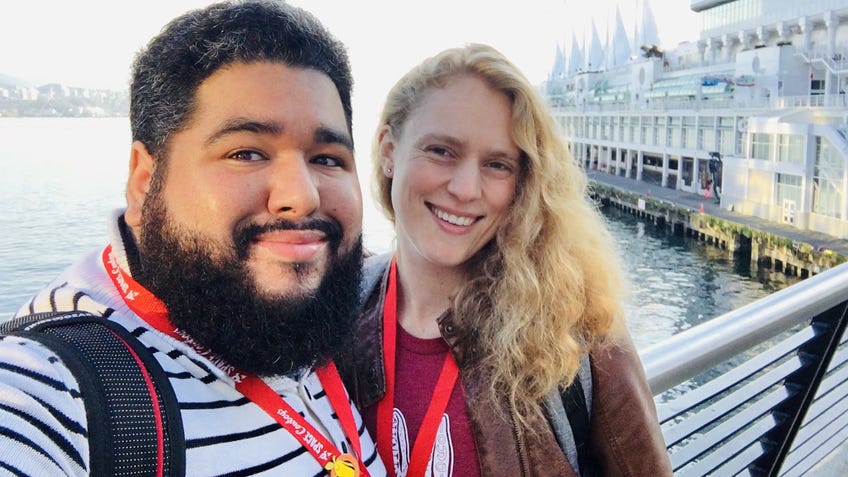“We want to amplify that games are truly for everyone”: Keystone studio founders on championing diversity and community in tabletop
Isaac Vega and Lindsey Rode discuss launching Rose Gauntlet Entertainment and the label’s debut release.
Earlier this year, Dead of Winter co-creator Isaac Vega and designer Lindsey Rode announced that they had co-founded their own independent publishing company, Rose Gauntlet Entertainment. Alongside the announcement, the duo revealed that the studio’s first release would be a set-collection board game about wildlife called Keystone: North America, which launches on Kickstarter today.
With things moving so quickly, Dicebreaker caught up with Vega and Rode to discuss how exactly Rose Gauntlet came about and what players can expect from the burgeoning studio.
Where did the idea to start Rose Gauntlet Entertainment come from? Why start a studio now? Is this something you've always wanted to do?
Vega: Well, the question of why now is definitely a great one. Starting a business in 2020 would have not been the ideal for many people. But honestly, Lindsey and I have spoken on and off about it for a long time. When I left Plaid Hat, I took some time to reorient myself and really understand what the next step was. Lindsey and I started speaking more seriously during the summer of 2020, about the possibility of starting Rose Gauntlet, and it just snowballed from there. Honestly, it's been an absolute dream come true. We're just so enamoured by the reception that we've gotten already.
I still can't believe sometimes that it actually happened after all those years after daydreaming about it.
Rode: It was certainly our favourite coffee talk at cons. In the mornings, we would get coffee. And then we would just kind of daydream. When Isaac said, “'Hey, I think I'm gonna leave Plaid Hat.” I said, “Bullshit.” And then you know, we were both wrapping up big projects. We both had like a moment to breathe, which almost never happens. So I started, like, mentally kind of getting ready. When Isaac approached me in 2020 and said “Do you want to do it?”, then from that point on, it was rapid-fire. But I still can't believe sometimes that it actually happened after all those years after daydreaming about it.

Are there any personal or specific reasons that you wanted to start your own studio? Is there anything you want to give to the industry and community that you couldn't have before Rose Gauntlet?
Rode: I think there's really two main parts to this that were really important to me. The first one is we would have complete control over the community that we were going to cultivate. We had a very strong vision of a really accepting and welcoming community that we maybe weren't seeing everywhere in the board game industry. And we just thought we could make a great example so we could show how it's done.
We knew that other studios weren't going to support some of these projects and the only way that we were ever going to see some of our ideas come to life was to take the reins.
Then the other half of it was we have projects and ideas that other studios kind of shied away from. Things such as the video game [Gone to Gaia] and a few other things that were either really different or really risky that were potentially going to require a big investment for something that's not really a proven concept. Isaac and I got to the point where we knew that other studios weren't going to support some of these projects and the only way that we were ever going to see some of our ideas come to life was to take the reins and show everyone that they're ideas worth investing in.

How are you hoping that Rose Gauntlet will cultivate a more positive community?
Vega: Something that Lindsay and I have talked about quite a bit is that as we get more established, we definitely want to have more opportunities for our community to meet, socialise, engage with us, but to also engage with each other. We're going to be announcing a Discord channel very soon.
We're also a little bit more open about our entire experience. I know that some companies, depending on what stage they're at, can be more open than others due to regulations. But we've always wanted to tell our community about what's going on with our personal lives. You know? The struggles of what it is to build a company, how that affects the games that we design and the stories that we're trying to tell. Mentorship is something else that we want to continue and have it be a part of our day-to-day process as well as much as that we can handle. We've opened the doors to people like Jeff (Joyce), who is my co-designer on Keystone. That relationship started off as me kind of mentoring him on that design. I'd never had the intention to sign that game for our own company. Seeing more diverse members come into the community is something that we're very passionate about.
Just making an effort to learn about more people than just the connections that you have or you've built over your time as a business.
Rode: I have noticed that a company might be very tight with the community, but it's not the whole company, it's just the social media manager. No-one else in the company is really tuned in to what's going on in the community or really accessible to the community. That’s a common mistake that we're trying to avoid. The only other thing is just hiring people that reflect the community you want to build is a big deal. It definitely takes a little bit more work. Someone might not be ready, but you can see potential and you mentor them until they are. Just making an effort to learn about more people than just the connections that you have or you've built over your time as a business. That's going to be the best thing you can do to make your company seem really welcoming. And it's going to make your community a lot better, because you're going to be having all these employees having so many different perspectives contributing.
What kind of strides do you want Rose Gauntlet to make in forming this positive community?
Vega: We know that there's a lack of diversity within the community itself and in the industry. One of the things that we want to amplify as much as possible is that games are truly for everyone. You are welcome here. This experience of sitting around the table playing a game with your friends should be uplifting and it should be helping you get to know the people across the table as much as possible. And we also want to make sure that the games that we bring into the world, the community that we form and the people that we amplify are also helping that narrative come across, so that we can bring more people into the community to make it a little bit more diverse and safer.
We want to give more opportunities to people that don't necessarily feel welcome in the community right now.
I'm LGBTQ and Lindsey is a woman in this industry - we're already rarities, especially as owners. We want to make sure that we can open the space for more people like that in the industry by giving everything we possibly can to make something great. We’ve tried to feature other content creators that don't necessarily have a huge platform or aren't necessarily as big as Watch It Played or the Dice Tower. They were all amazing, diverse voices that love the board game industry. We want to give more opportunities to people that don't necessarily feel welcome in the community right now.
Rode: Speaking as a woman I’ve had some crazy experiences coming in the industry, or just in local game stores growing up and my love of games persevered over some of those really weird or negative experiences I had. I've talked to a lot of women that had similar experiences. I think it’s just about making it better for the people who come after us. So that, they don't have to go through some of the stuff that we went through. Honestly, they'll all make better games in the future, if we can create that environment for them.

Why Keystone: North America for Rose Gauntlet’s debut?
Vega: Jeff approached me in summer 2020, wanting to get some feedback on his game. That conversation went back and forth for a little while, never really intending to sign the game under our brand. As the game grew and grew, I was just seeing the passion that he had for animal conservation and educating people come through in a way that started infecting me. Lindsey and I, we didn't expect to have a game ready for release in 2021. That was not our expectation. But Jeff's design was really interesting. So we went ahead and talked to Jeff and he was open to the idea of us taking his baby and doing some interesting stuff with it.
We know this game will be able to give people a better understanding of the work that it takes to be a biologist in North America.
As the project developed, I came on as a co-designer because it needed some additional work. I started working on the design and refining the little issues that come when you're a first-time designer. I also added the solo element to the game, which has become an amazing aspect of the game that we're super excited to be debuting. We were just enthralled by this project and felt that it checked off all the boxes of what our core values are. We know this game will be able to give people a better understanding of the work that it takes to be a biologist in North America and the efforts that they're making.
Rode: When Jeff showed the design to me, even though it was a little raw, there was so much potential there. When Jeff told us about the research - how the number on every animal represents where it is on the food chain, how every animal is 100% accurate to its preferred habitats. With that level of accuracy, I just really fell in love with the whole concept.
Will Rose Gauntlet be doing much with app integration? Will its games involve anything on a similar level to a companion app to Forgotten Waters?
Rode: There’s so much focus on the question of what level of digital should a board game be? I think just the question is more: at what level does it stop being fun? I know Isaac and I don't have a lot of sacred cows. We will do whatever we think will be the most fun thing we can do. I would expect to see a lot of really interesting integrations with technology.
Vega: With Forgotten Waters, the app integration was definitely implemented with the approach of “let's make the entire experience easier for the consumer”. The app just makes it so much easier. What we're hoping to do with Life After Dungeon is implementing some of that and taking it a little bit to the next level, and allow for some roleplaying elements to be brought in as well. Lindsey has a far vaster knowledge than I do on the RPG front. I'm so excited to be taking both of our respective experiences and bringing them together and trying to provide something to the industry that is a very deep merger of the RPG and dungeon-crawler. Hopefully we can achieve it. I know a lot of people have tried. We'll see what can happen.
I think having a super bright world that's really colourful and welcoming will help us offset some of the really serious themes that we'd want to touch upon.
Earlier this year, you announced that you would be releasing an RPG called Life After Dungeon. What have been the most important inspirations that have helped shape the tone of Life After Dungeon?
Vega: When it comes to tone, like most of the things that I've done in the past with Dead of Winter and Forgotten Waters, there's definitely dark and light aspects to the game. Life is a fun road that has a lot of lows and highs, terrible things can happen. We want to explore life - so it's going to be representative of all of the stories that we're passionate about. We're trying to take a lot of aspects from television writing and folding it into the way stories are crafted. Life After Dungeon is maybe a little Lost-ish. Having a feeling of that, but it's gonna be way lighter.
Rode: We will be exploring some really dark topics - like, what is the meaning of life? What did you leave behind? Were there any regrets? We'll probably be offsetting it with the most brightly-coloured, happy world, at least in some places. I think having a super bright world that's really colourful and welcoming will help us offset some of the really serious themes that we'd want to touch upon.
Will Rose Gauntlet be releasing anything along the lines of Dead of Winter?
Vega: Life after Dungeon is certainly the closest thing that we've announced. I can't necessarily say that Dead of Winter 2 is on the horizon. But we are exploring a lot of different elements that inspire us at the moment. So I'm not saying that's never going to be the case. But I just don't know.
Rode: We do have games that are codenamed. And if you're like, man, I really wish that Isaac would be forced to go in a really dark direction where he just has to scare the crap out of himself for everybody else, then there's one of those codenames on there that does that. I don't know if anyone knows this, but Isaac doesn't actually like working on scary games.
Vega: Oh, I like working on them. I don't like watching scary things.
Rode: He’s the biggest scaredy cat ever. Which is hilarious. I think it's actually why he's so good at it, because he's really tuned in on what scares the crap out of people.
Vega: Just pay attention to There Will be Ghosts.



